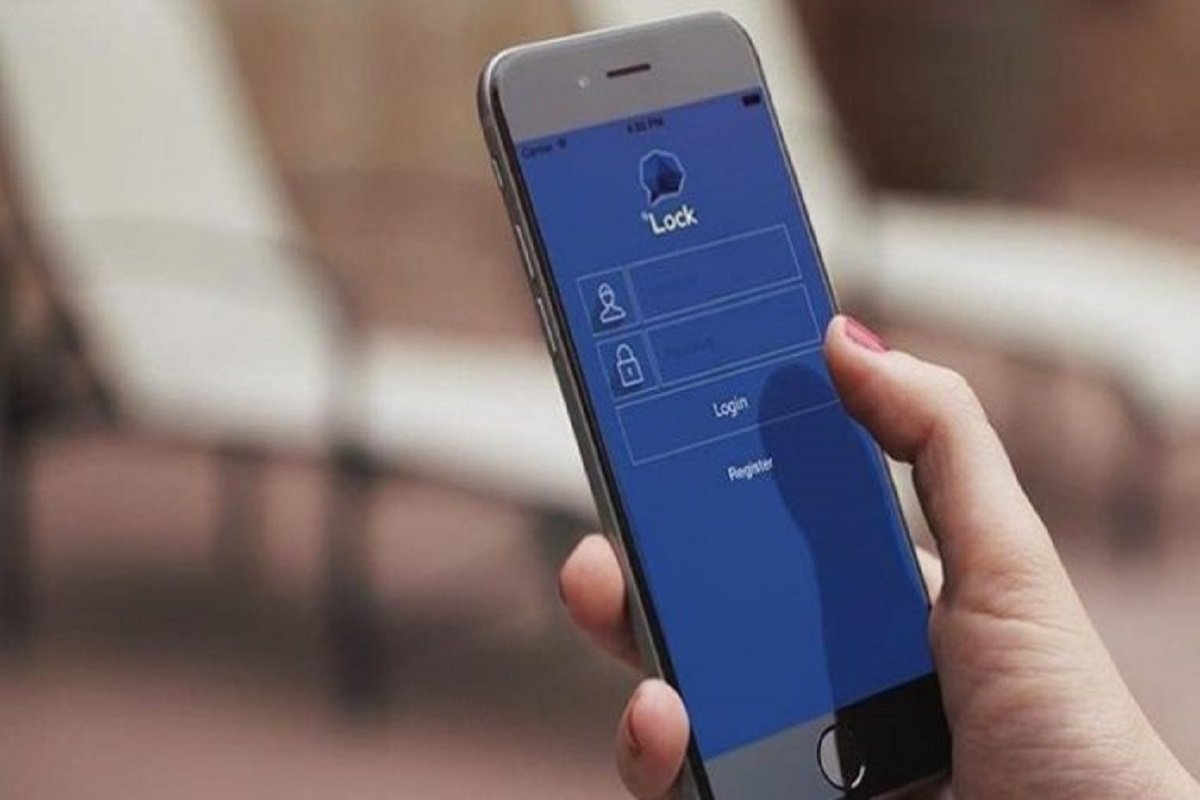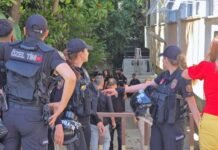The Turkish government detained at least 29 people on Wednesday across Turkey as part of its massive post-coup witch hunt targeting alleged members of the Gülen movement.
The detentions came after the chief public prosecutor’s office in western İzmir province issued detention warrants for 35 people in 11 provinces as part of an investigation into the Gülen movement. Police detained 21 people in the operations over their alleged use of the ByLock mobile phone messaging application and financing the activities of the movement.
Turkish authorities believe that ByLock is a communication tool among suspected followers of the Gülen movement. Tens of thousands of people, including civil servants, police officers, soldiers, businessmen and even housewives, have either been dismissed or arrested for using ByLock since the failed coup attempt on July 15, 2016.
In a separate probe in northwestern Bursa province, counterterrorism police units detained at least eight people, including two Turkmenistan nationals, over their alleged use of ByLock.
Also, in the eastern province of Erzincan, Deputy Governor Yaşar Kemal Yılmaz was suspended from his job over his alleged links to the Gülen movement. Yılmaz was appointed deputy governor on Dec. 1, 2016.
Also on Wednesday, a Turkish court sentenced 15 people to life imprisonment over their alleged involvement in the controversial coup attempt on July 15, 2016. The 29th High Criminal Court in İstanbul handed down aggravated life sentences to 13 people, while two other people received life terms for their alleged involvement in the deadly confrontation on the Fatih Sultan Mehmet Bridge during the night of the coup bid. They were convicted of attempting to violate the constitutional order on the night of the coup attempt.
In a separate hearing, the 22nd High Criminal Court in İstanbul also handed down aggravated life terms to 13 convicts while it ordered life imprisonments for 37 suspects. The trial was about the alleged coup bid-linked activities at Selimiye Barracks and the alleged attempt to invade the Riot Police center in Üsküdar district on the Asian part of İstanbul during the night of July 15, 2016. They were convicted of attempting to violate the constitutional order.
Another person was sentenced to 8 years and 9 months in imprisonment for being an alleged member of the Gülen movement. The court also released 77 people, including two lieutenant colonels, a lieutenant, four petty officers and 10 expert sergeants.
27-YEAR-OLD TEACHER INFECTED WITH HIV VIRUS WHILE IN PRISON
Meanwhile, a 27-year-old Turkish teacher who was earlier jailed as part of the government’s post-coup crackdown against the Gülen movement was infected with the HIV virus while he was in prison, according to his lawyer.
Lawyer Salih Koçak told the Cumhuriyet daily on March 31 that his client, a teacher imprisoned over his alleged use of ByLock who wants to remain anonymous, was healthy when he was first arrested on Dec. 9, 2016. After spending 11 months in pretrial detention, the teacher was released in October 2017. During his time in prison, the teacher and 15 cellmates were taken to dentist four times.
“[After being released from prison, he got sick and] had a blood test in March 2018. According to the results from the Kocaeli University Hospital, he was infected with the HIV virus. This virus incubates for six months to two years after infection. If you count the days, [it turns out] my client was in jail when he was infected,” the lawyer said.
Kocak said his client was working for a prep school before being dismissed, that the government revoked his teaching license and that he spent 11 months in an overcrowded prison cell with 30 other inmates. Underlining that his client is single and that he will never be able to get married due to this virus, the lawyer said: “It would have been better if he were sentenced to capital punishment. He will die if he gets the flu two years from now.”
Turkey survived a controversial military coup attempt on July 15, 2016 that killed 249 people. Immediately after the putsch, the Justice and Development Party (AKP) government along with autocratic President Recep Tayyip Erdoğan pinned the blame on the Gülen movement.
Fethullah Gülen, who inspired the movement, strongly denied having any role in the failed coup and called for an international investigation into it, but President Erdoğan — calling the coup attempt “a gift from God” — and the government initiated a widespread purge aimed at cleansing sympathizers of the movement from within state institutions, dehumanizing its popular figures and putting them in custody.
Turkey has suspended or dismissed more than 150,000 judges, teachers, police and other civil servants since July 2016. Turkey’s interior minister announced on December 12, 2017 that 55,665 people have been arrested. On December 13, the Justice Ministry announced that 169,013 people have been the subject of legal proceedings on coup charges since the failed coup.
A total of 48,305 people were arrested by courts across Turkey in 2017 over their alleged links to the Gülen movement, Interior Minister Süleyman Soylu said on Dec. 2, 2017. “The number of detentions is nearly three times higher,” Soylu told a security meeting in İstanbul and claimed that “even these figures are not enough to reveal the severity of the issue.”















